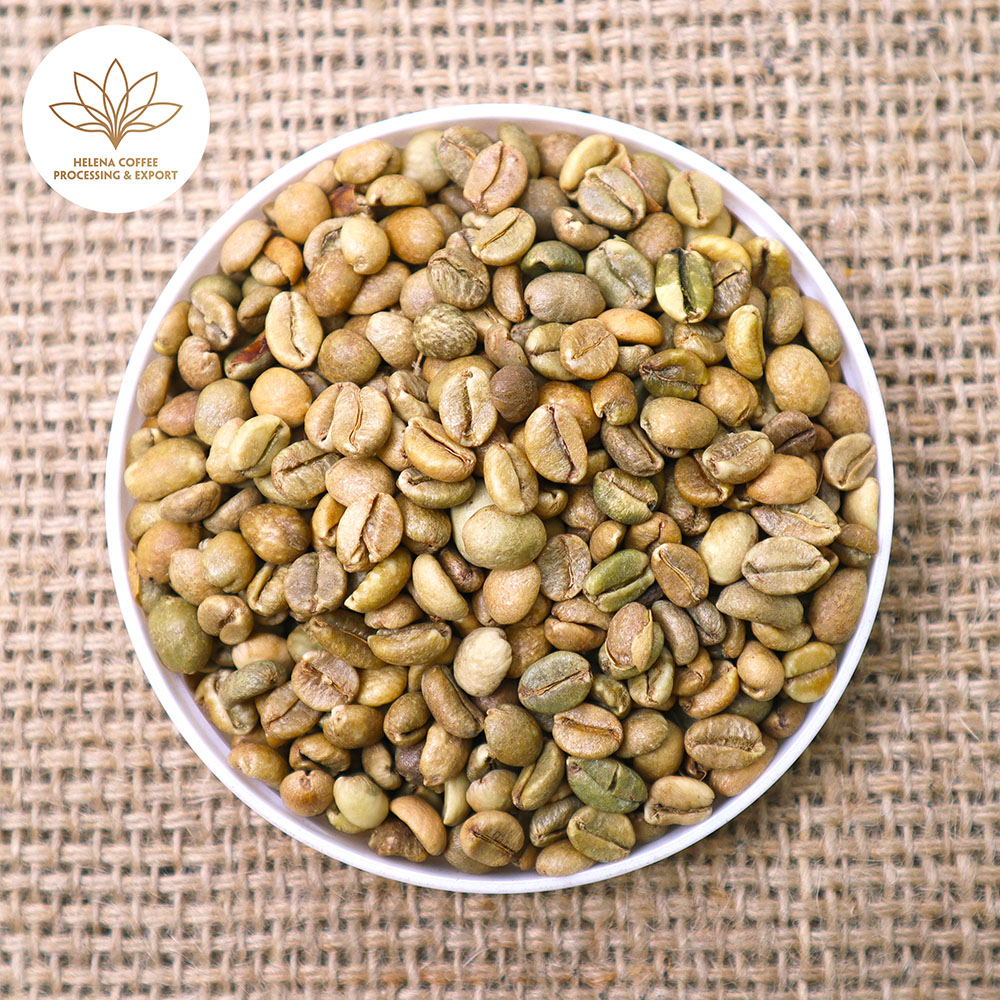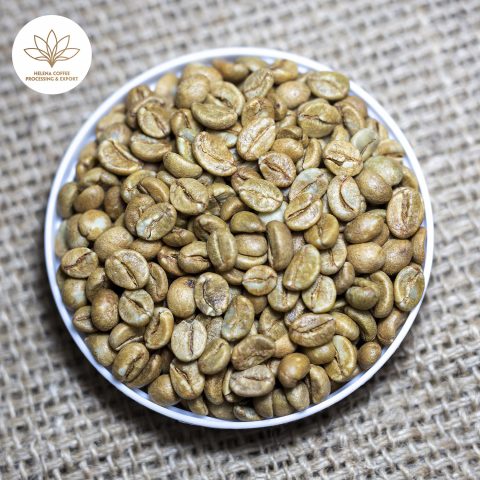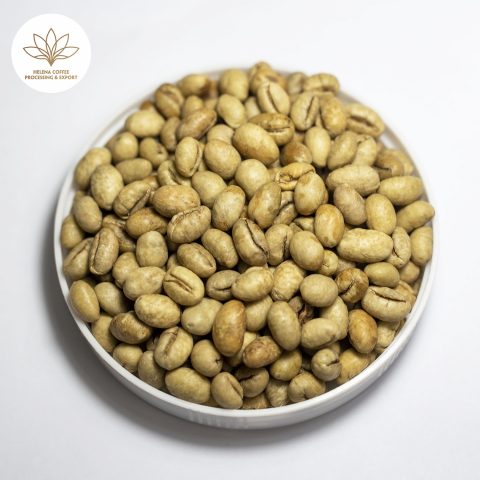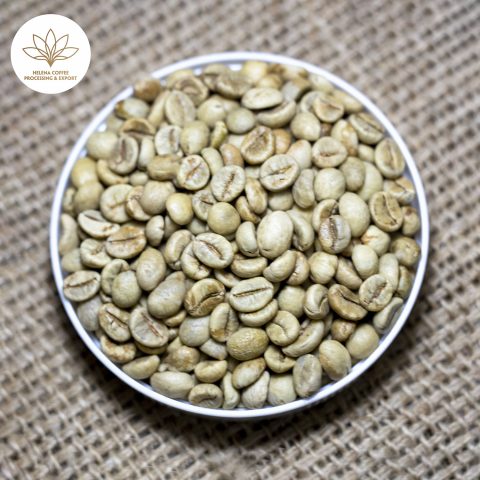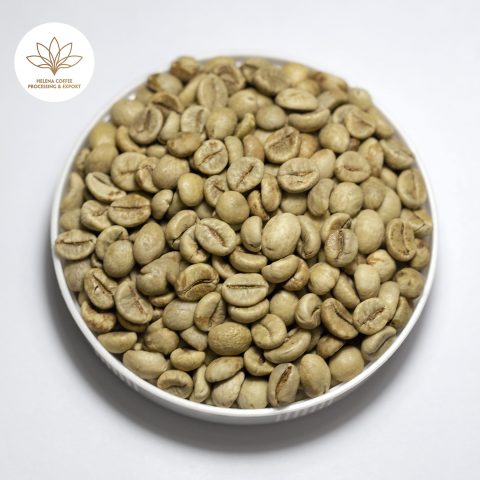Vietnam Liberica Coffee Beans – S18, S16
- Home
- Products
- Vietnamese Robusta Green Coffee Beans
- Vietnam Liberica Coffee Beans – S18, S16
Vietnam Liberica Coffee Beans – S18, S16
$4.50 $4.00
- Variety: Liberica
- Region: Kon Tum, Quang Tri, Lam Dong
- Elevation: 800m
- Processing: DRY PROCESSING
- Ripe Rate: 90%-95%
- Price per kilogram: $/kg
- Flavor Notes: fruity, floral, and woody flavors
- Features: The beans possess a natural sweetness often described as having hints of dark chocolate, caramel, or molasses. Some may even detect a slightly smoky undertone, which adds to the richness of the flavor. The body of Liberica coffee is full and bold, with a lower acidity compared to Arabica, making it an excellent choice for those who prefer a smooth, robust cup of coffee.
59740 in stock



Coffee Beans Product Information
Vietnam Liberica Coffee Beans: An Exotic Delight for the Coffee Connoisseur
Vietnam is known for its diverse and flavorful coffee culture, with the country being the second-largest producer of coffee in the world. Among the various types of coffee grown in Vietnam, Liberica coffee beans hold a special place due to their unique taste and aroma. These exotic beans are a lesser-known variety compared to the widely popular Arabica and Robusta beans, but they are quickly gaining recognition among coffee enthusiasts worldwide.
Vietnam Liberica Coffee Beans – S18, S16 – Liberica coffee has extraordinary characteristics and flavor. Golden, shiny coffee beans are wonderful, with a faint scent similar to jackfruit. Roasted coffee beans smell like dried jackfruit, so they are often mixed with coffee and tea to create flavor.
When mixed, it creates a faint aroma, especially the cherries’ sour taste, creating a refreshing feeling. Jackfruit coffee (cherry) is suitable for women’s preferences because the blend of smell and taste creates a feeling of rustic, noble, and deeply intertwined.
This is a coffee line that suits European tastes, European-style instant coffees often have a high proportion of jackfruit coffee, so they often have a characteristic sour taste.
Origin and History of Vietnam Liberica Coffee Beans
Liberica coffee beans are a species of Coffea liberica, native to western and central Africa. In the late 19th and early 20th centuries, these beans were introduced to various countries in Asia, including Vietnam, as a replacement for the Arabica coffee plants that had been devastated by the coffee leaf rust disease.
Liberica coffee plants thrive in Vietnam’s tropical climate and fertile soil, with most of the cultivation occurring in the southern provinces. Over time, Vietnamese farmers have perfected the art of growing and processing these beans, resulting in a truly exceptional coffee experience.
Flavor Profile
Vietnamese Liberica coffee beans are cherished for their distinct flavor and aroma, which set them apart from the more common Arabica and Robusta varieties. They have a unique combination of fruity, floral, and woody notes, giving them a well-rounded and complex taste.
The beans possess a natural sweetness, often described as having hints of dark chocolate, caramel, or molasses. Some may even detect a slightly smoky undertone, which adds to the richness of the flavor. The body of Liberica coffee is full and bold, with a lower acidity compared to Arabica, making it an excellent choice for those who prefer a smooth, robust cup of coffee.
Processing and Roasting
Vietnamese Liberica coffee beans are typically processed using the wet or dry method, depending on the region and producer. The wet method involves fermenting the beans to remove the outer pulp, followed by washing and drying. This process results in a cleaner and brighter flavor profile. The dry method, also known as the natural method, involves sun-drying the beans with the fruit still intact. This method imparts a fruitier and more complex taste.
Roasting Liberica beans requires careful attention and skill, as they have a higher moisture content and unique flavor profile. A medium to dark roast is generally preferred, as it highlights the beans’ natural sweetness and distinctive taste. It is important to avoid over-roasting, which can result in a bitter and burnt flavor.
Brewing Techniques
To fully appreciate the unique flavors of Vietnamese Liberica coffee beans, it is essential to use proper brewing techniques. Methods like pour-over, French press, and siphon brewing tend to extract the best flavors and aromas from the beans, while also showcasing their full-bodied and smooth texture. Using freshly ground beans and clean, filtered water will further enhance the taste and aroma of your Liberica coffee.
In Conclusion
Vietnamese Liberica coffee beans are a true gem for coffee lovers seeking to explore new and exotic flavors. Their distinctive taste, aroma, and rich history make them a delightful addition to any coffee aficionado’s collection. As the popularity of these beans continues to grow, more and more people are discovering the unique and captivating world of Vietnam’s Liberica coffee.
Vietnam Liberica Coffee Beans – A special kind of coffee
Coffee Jackfruit (Cherry) or Liberian coffee (two-part nomenclature: Coffea liberica, synonym Coffea Excelsa) belongs to the family of Cacao. The tree is 2m -5m tall. Stems, leaves, and fruits are significant and different from coffee. Due to the large, dark green leaves, it looks like a jackfruit tree, so it is called jackfruit coffee.
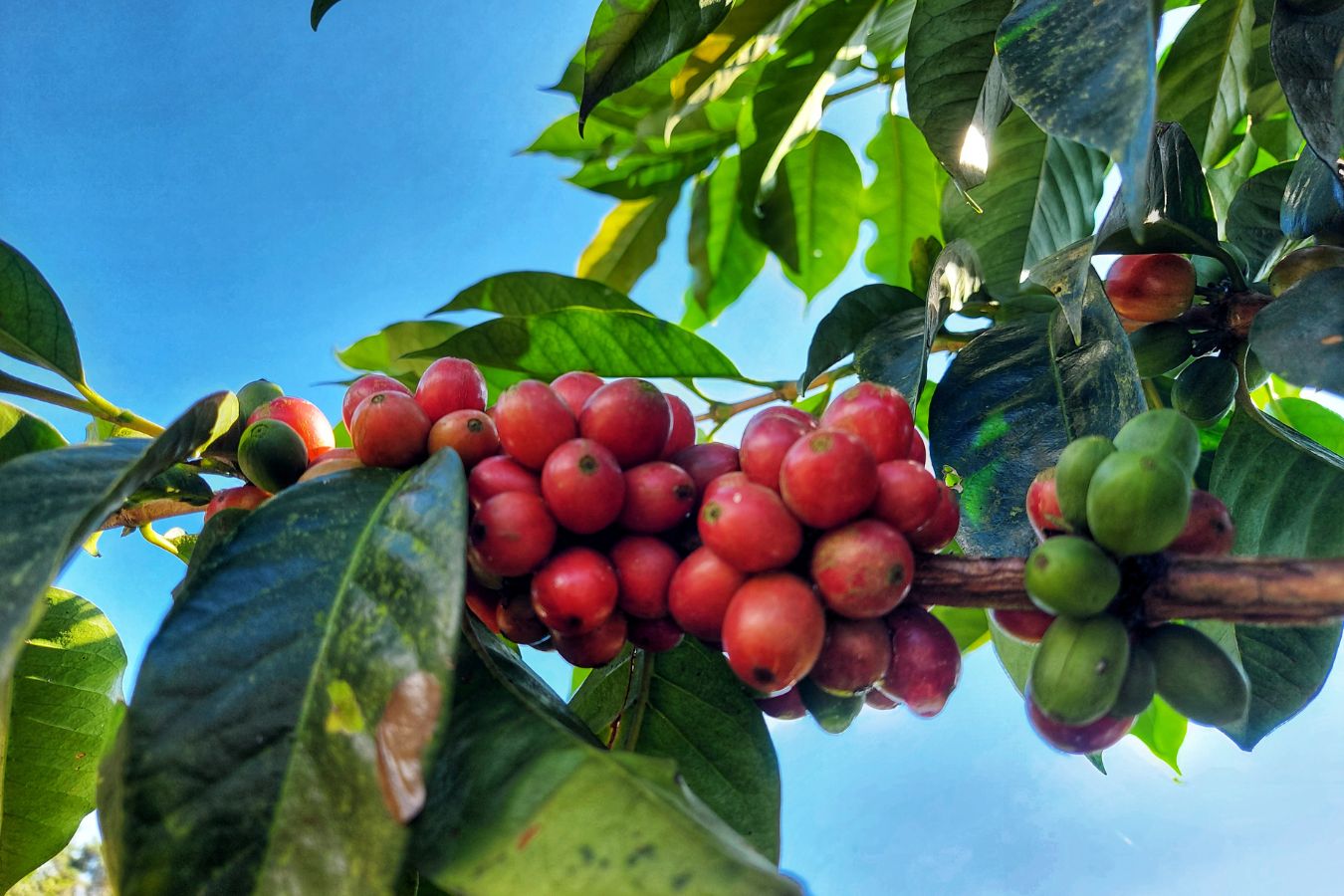
The tree is drought tolerant and requires little water, so it is often planted in a wide range. Due to its drought-resistant characteristics and high resistance to pests and diseases, jackfruit coffee is currently used as a rootstock for other types of coffee, which is very popular with gardeners.
In Vietnam, crops are mainly grown in provinces such as Nghe An, Quang Tri, Gia Lai, and Kon Tum, which have suitable conditions for developing industrial crops but are not entirely favorable for coffee development. This is also why Dak Lak and especially Buon Ma Thuot are considered the capital of coffee, but there is a tiny area to grow this coffee.
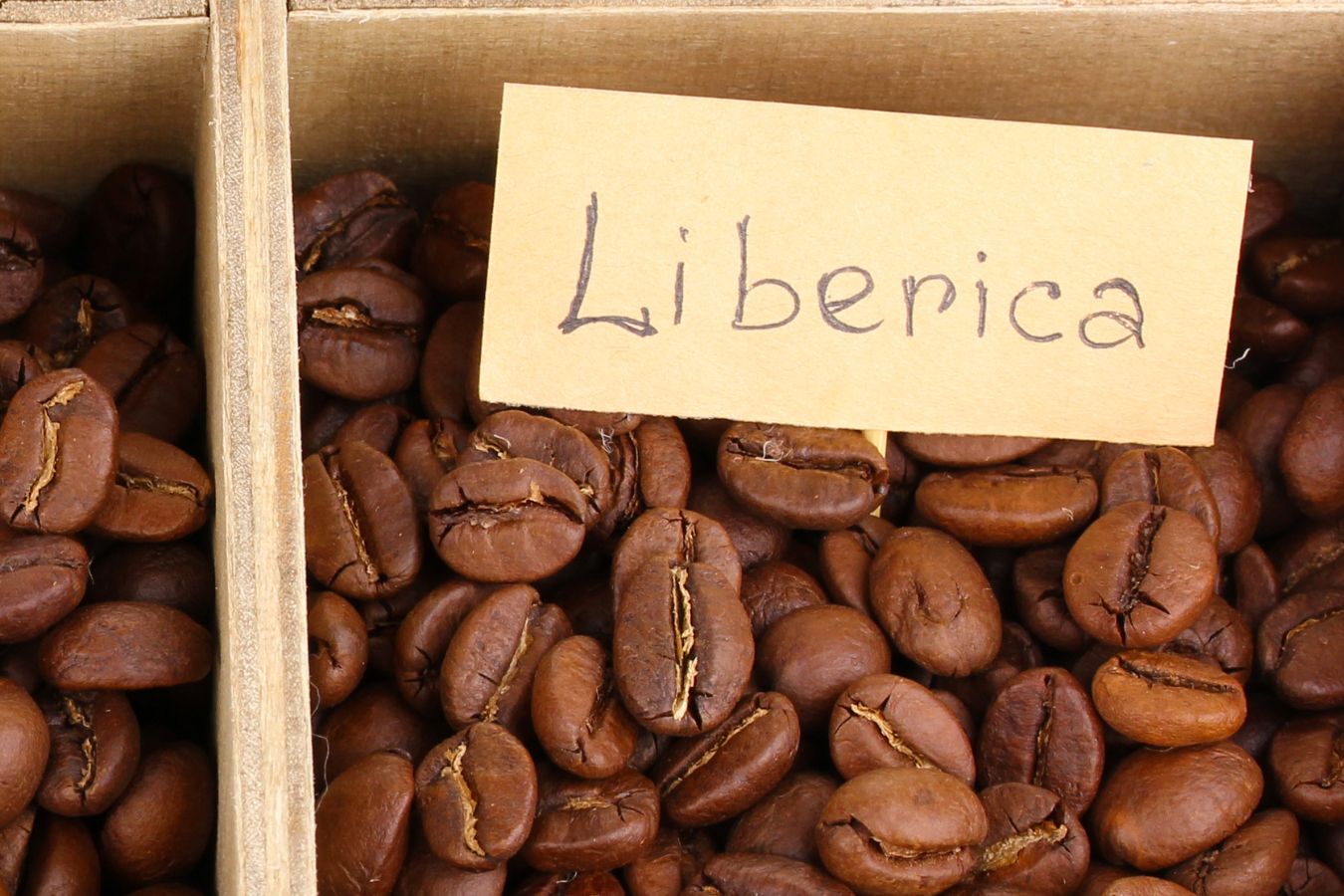
In the Central Highlands, Liberica coffee often blooms and is harvested later than other coffee species due to the characteristic that it blooms thanks to rainwater. The fruit is harvested after other coffee species in the 12th lunar month finished harvesting, the output of jackfruit coffee is not large, the yield is poor, and the taste is sour, so jackfruit coffee is not favored and grown in the area. The tree is usually planted as a pure species or as a windbreak for the coffee plots, usually planted in rows with a distance of 5-7m per tree.
Jackfruit coffee has exceptional characteristics and flavor. Golden, shiny coffee beans are lovely, with a faint scent similar to jackfruit. Roasted coffee beans smell like dried jackfruit, so they are often mixed with coffee and tea to create flavor.
When mixed, it creates a faint aroma, especially the cherries’ sour taste, creating a refreshing feeling. Jackfruit coffee (cherry) is suitable for women’s preferences because the blend of smell and taste creates a feeling of rustic, noble, and deeply intertwined. This is a coffee line that suits European tastes, European-style instant coffees often have a high proportion of jackfruit coffee, so they often have a characteristic sour taste.
Where to buy Liberica coffee?
With many years of experience in production, processing, and quality management, Helena Coffee Vietnam is proud to be a reasonably priced supplier of high-quality and stable Jackfruit (Liberica) coffee.
The successful construction of a closed model from the stage of collection, selection, and preliminary processing to the stage of operation, supply, and distribution of products; helped Helena Coffee Vietnam optimize the quality control process and product stability; This makes the products that Helena Coffee Vietnam provides to customers at an excellent price with very high quality.
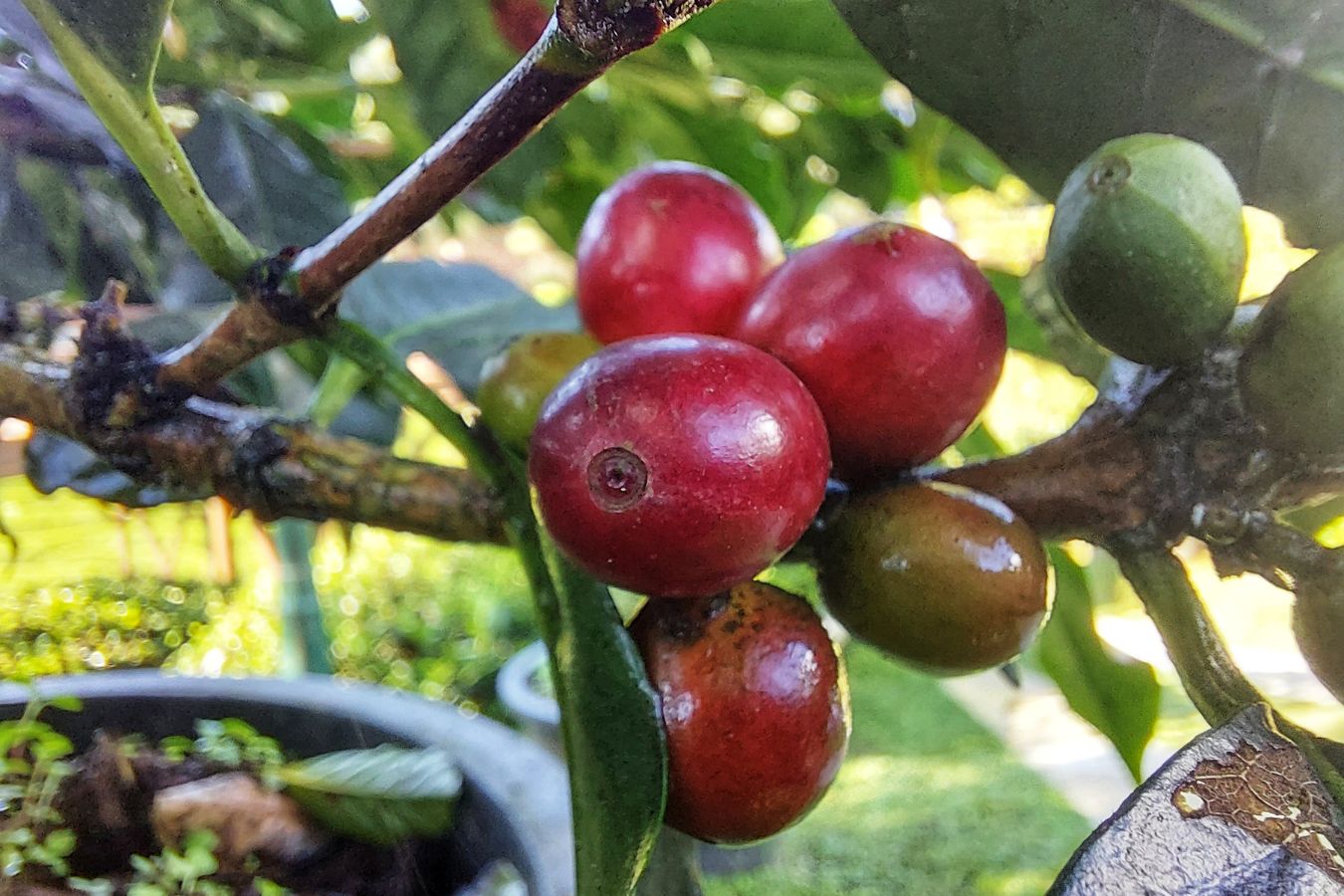
This line has an exceptional flavor that, if mixed, will create excellent post-sour coffee products at a low price. Currently, Helena Coffee Vietnam offers two lines of green coffee related to this product, which are Jackfruit (Liberica) type 1 (organic) and Jackfruit coffee (Liberica) type 2 (general). If you are interested, please get in touch with us to learn more about these lines!
Description of product information Liberica coffee dry processing
| Variety | Liberia |
| Region | Kon Tum, Quang Tri, Lam Dong |
| Elevation | 800m |
| Processing | DRY PROCESSING |
| Ripe Rate | 90%-95% |
| Moisture | 12.5% |
| Foreign Matter | 0.1% |
| Black (Black) | 0.1% |
| Break (Break) | 0.5% |
| Rate on Sieve | 90% |
| Bean size (Sieve) | S16, S18 |
| Season | Yearly |
| Packing (Packing) | 60kg/bag |
Certifications



Exploring Vietnam Robusta: Bold Flavor Profile and Unique Taste
Vietnam shines as the top global exporter of robust and flavorful Robusta coffee, with its lush Central Highlands provinces—Kon Tum, Gia Lai, Dak Lak, Dak Nong, and Lam Dong—dedicating around 90% of their coffee fields to this thriving crop.
This bountiful bean also thrives in midland regions like Vung Tau and Dong Nai, known for their high yields. Delve into the aromatic world of Robusta coffee through renowned growing regions such as Pleiku, Ayun Pa, Buon Ho, and the iconic Buon Ma Thuot—celebrated as Vietnam’s coffee capital.
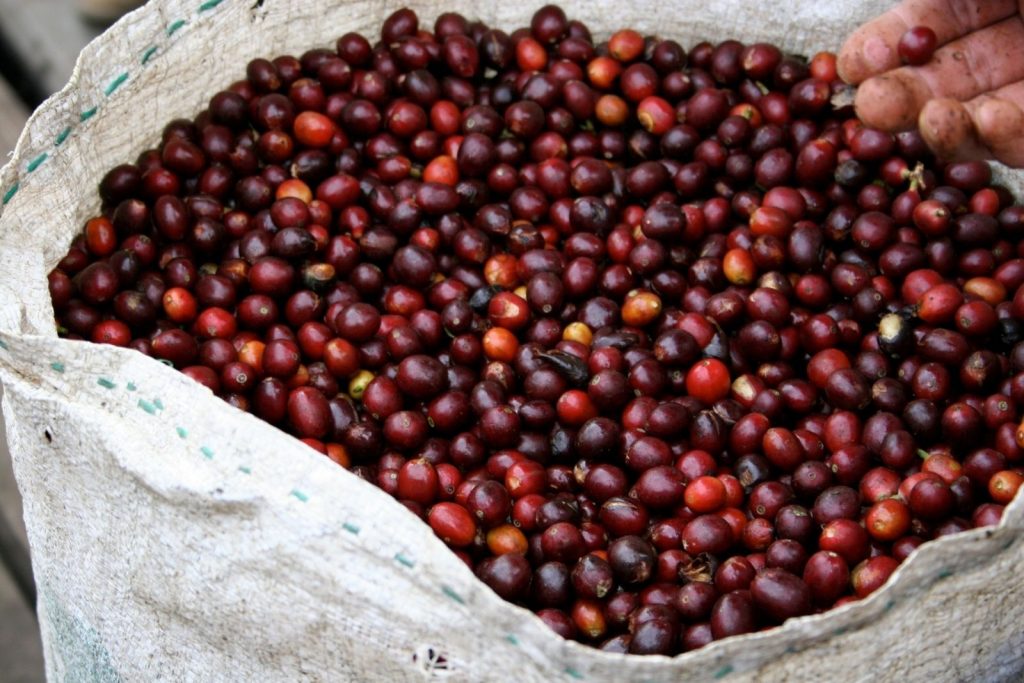
Attitude
Nestled at an elevation of 500m-600m above sea level, the Central Highlands of Vietnam boast rich red basalt soil and a cool, rainy climate—perfect conditions for cultivating exquisite Robusta coffee for centuries. This region’s beans are famed for their potent caffeine content, bold flavors, and low acidity, enticing coffee aficionados worldwide.
Yet, the allure of Central Highlands coffee lies in its unique regional nuances. Some beans enchant with silky notes of butter, oil, or caramel, while others capture the essence of the sun-kissed highlands and crisp mountain breezes. Discover the captivating tastes that have made Central Highlands coffee a cherished treasure for generations.
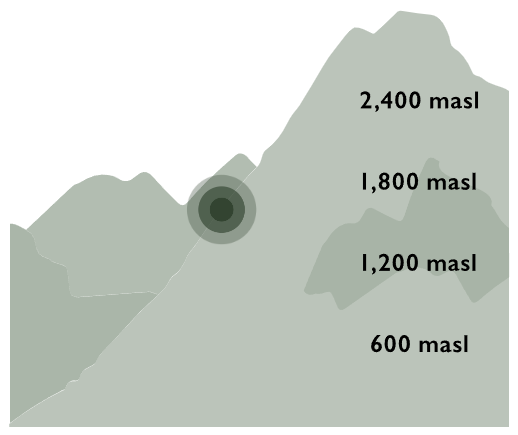
Environment
Climate factors such as precipitation, temperature, and humidity play a crucial role in shaping a coffee’s maturation, overall flavor, and quality. Coffee-producing countries either boast naturally ideal conditions for growth or employ innovative techniques to enhance their ecosystems.
Robusta coffee, in particular, thrives in a harmonious dance with its environment, flourishing under the tender care of nature’s elements. As you indulge in its rich, bold flavors, you’ll savor the exquisite results of this intricate interplay.
Precipitation
500m – 800m
Temperature
17℃
Humidity
71%
Processing
Coffee processing involves separating the bean from the cherry, with popular methods like washed, dry, and honey, among others. Each technique emphasizes different aspects to create unique flavors, inviting you to explore and savor the diverse world of coffee.
Washed
Fully Washed
Dried
Sun-dried
Natural
Fully Washed
Timeline
Harvest and export times are based off when a particular coffee will be at its peak quality. Cherries picked at the start of the harvest season tend to be underdeveloped, and those picked at the end are often overdeveloped, so producers aim for that sweet
Harvest
Export
Dec – Sept
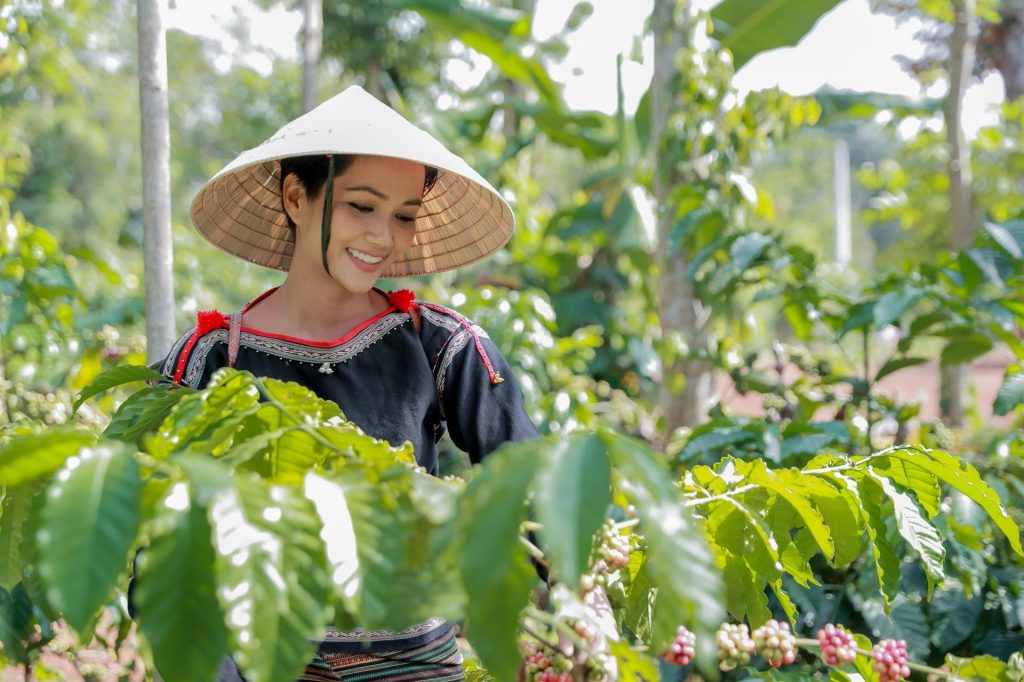
Dak Lak Viet Nam
Dak Lak Province, nestled in Vietnam’s Central Highlands, earns its title as the “capital” of Vietnamese coffee with its sprawling green coffee fields cascading across the region’s basaltic hills, bathed in sunlight and caressed by gentle winds. Home to numerous distinguished coffee brands, Dak Lak’s exceptional beans have captured hearts worldwide, with exports reaching over 80 countries and territories, solidifying its global reputation for exceptional coffee.
